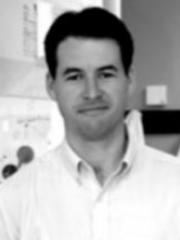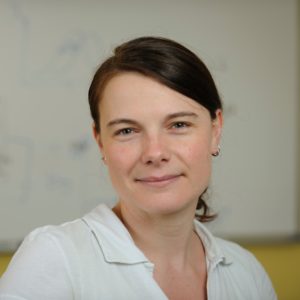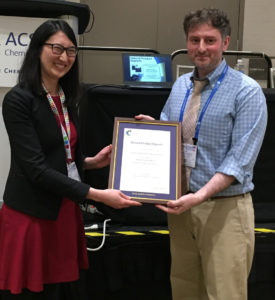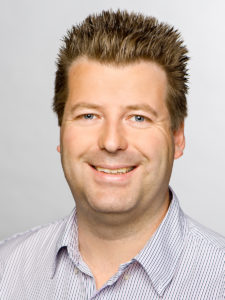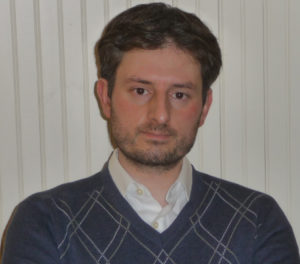We are delighted to warmly welcome three new Editorial Board Members to our Natural Product Reports – Professor Dong-Chan Oh (Seoul National University, South Korea), and Professor Eriko Takano (University of Manchester, UK), and Professor Changsheng Zhang (South China Sea Institute of Oceanology, China Academy of Sciences, China).
 |
Dong-Chan Oh studied oceanography and chemistry at Seoul National University, Republic of Korea. He obtained Ph. D. in marine natural products chemistry at Scripps Institution of Oceanography in 2006. After graduation, he joined Harvard Medical School as a postdoctoral research fellow and later worked as an instructor. In 2009, he started his independent academic career at Natural Products Research Institute, College of Pharmacy, Seoul National University in Korea. He conducted his research as a Howard Hughes Medical Institute International Early Career Scientist from 2012 to 2017. Dong-Chan Oh is currently a full professor of College of Pharmacy and the director of Natural Products Research Institute at Seoul National University.
His research focuses on the discovery, the structure elucidation, and the stereochemical determination of new bioactive natural products from microbes. |
| Eriko Takano is the Professor of Synthetic Biology in the Manchester Institute of Biotechnology, Department of Chemistry, School of Natural Sciences, Faculty of Science and Engineering, at the University of Manchester since 2012. In 2014, she was appointed as one of the three directors for the EPSRC/BBSRC-funded Manchester Synthetic Biology Research Centre, SYNBIOCHEM and in 2018, she was appointed as the deputy head of department of Chemistry. Eriko graduated from Kitasato University in Japan and did her undergraduate project with Prof Satoshi Omura (2015 Nobel Prize in Physiology and Medicine), before working at a R&D facility for a company, Meiji Seika Kaisha, for several years. After leaving industry, she obtained her PhD at the John Innes Institute, Norwich, UK, in 1994 on the regulation of antibiotic production in Streptomyces coelicolor. Before her arrival in Manchester, she had been Associate Professor at the University of Groningen, The Netherlands, and Assistant Professor (C1) at the Department of Microbiology / Biotechnology, University of Tübingen, in Germany.
Eriko is internationally recognized as a pioneer in the synthetic biology of microbes for antibiotic production. Her interests are in bioinformatics software development for designing natural products producers; untargeted metabolomics for chassis engineering in Streptomyces; secondary metabolite biosynthesis pathway assembly; and regulatory circuit engineering through signalling molecules and non-coding RNAs. Eriko has published 103 peer-reviewed papers and 4 book chapters and holds 5 patents. She is the Fellow of the Royal Society of Biology and has served as an expert advisor for the European Commission Scientific Committee on Emerging and Newly Identified Health Risks on synthetic biology, where she contributed to a series of three official Opinions with major impact on the development of the field. |
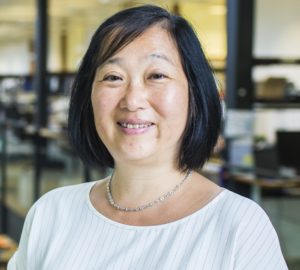 |
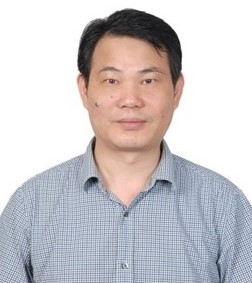 |
Changsheng Zhang obtained a BSc. in Biology (Shanghai Jiaotong University, China, 1994) and an MSc. in Biotechnolgy (East China University of Science and Technology, 1997). In 2002, he obtained his Ph.D in Chemical Microbiology (Bergische University of Wuppertal, Germany) with Prof. Dr. W. Piepersberg. He carried out postdoctoral research on natural product glycosylation studies with J. S. Thorson at University of Wisconsin, Madison (2003-2008). In 2008, he joined the South China Sea Institute of Oceanology, China Academy of Sciences.
His research interest focuses on marine polycyclic natural product discovery and biosynthesis
|
You can find some of their most recent RSC publications below:
Bioinformatics for the synthetic biology of natural products: integrating across the Design–Build–Test cycle
Pablo Carbonell, Andrew Currin, Adrian J. Jervis, Nicholas J. W. Rattray, Neil Swainston, Cunyu Yan, Eriko Takano and Rainer Breitling
Nat. Prod. Rep., 2016, 33, 925-932, DOI: 10.1039/C6NP00018E, Highlight
Switchable foldamer ion channels with antibacterial activity
Anna D. Peters, Stefan Borsley, Flavio della Sala, Dominic F. Cairns-Gibson, Marios Leonidou, Jonathan Clayden, George F. S. Whitehead, Iñigo J. Vitórica-Yrezábal, Eriko Takano, John Burthem, Scott L. Cockroft and Simon J. Webb
Chem. Sci., 2020, Advance Article, DOI: 10.1039/D0SC02393K, Edge Article
Functional characterization of the halogenase SpmH and discovery of new deschloro-tryptophan dimers
Zhiwen Liu, Liang Ma, Liping Zhang, Wenjun Zhang, Yiguang Zhu, Yuchan Chen, Weimin Zhang and Changsheng Zhang
Org. Biomol. Chem., 2019, 17, 1053-1057, DOI: 10.1039/C8OB02775G, Communication
Heterologous expression of the trichostatin gene cluster and functional characterization of N-methyltransferase TsnB8
Wei Liu, Vinay Gopal Jannu, Zhiwen Liu, Qingbo Zhang, Xiaodong Jiang, Liang Ma, Wenjun Zhang, Changsheng Zhang and Yiguang Zhu
Org. Biomol. Chem., 2020, 18, 3649-3653, DOI: 10.1039/D0OB00617C, Communication
Activation and characterization of a cryptic gene cluster reveals a cyclization cascade for polycyclic tetramate macrolactams
Subhasish Saha, Wenjun Zhang, Guangtao Zhang, Yiguang Zhu, Yuchan Chen, Wei Liu, Chengshan Yuan, Qingbo Zhang, Haibo Zhang, Liping Zhang, Weimin Zhang and Changsheng Zhang
Chem. Sci., 2017, 8, 1607-1612, DOI: 10.1039/C6SC03875A, Edge Article
Identification and bioactivity evaluation of secondary metabolites from Antarctic-derived Penicillium chrysogenum CCTCC M 2020019
Imran Khan, Haibo Zhang, Wei Liu, Liping Zhang, Fang Peng, Yuchan Chen, Qingbo Zhang, Guangtao Zhang, Weimin Zhang and Changsheng Zhang
RSC Adv., 2020, 10, 20738-20744, DOI: 10.1039/D0RA03529G, Paper
Characterization of the flavoenzyme XiaK as an N-hydroxylase and implications in indolosesquiterpene diversification
Qingbo Zhang, Huixian Li, Lu Yu, Yu Sun, Yiguang Zhu, Hanning Zhu, Liping Zhang, Shu-Ming Li, Yuemao Shen, Changlin Tian, Ang Li, Hung-wen Liu and Changsheng Zhang
Chem. Sci., 2017, 8, 5067-5077, DOI: 10.1039/C7SC01182B
Flavoenzyme CrmK-mediated substrate recycling in caerulomycin biosynthesis
Yiguang Zhu, Marie-Ève Picard, Qingbo Zhang, Julie Barma, Xavier Murphy Després, Xiangui Mei, Liping Zhang, Jean-Baptiste Duvignaud, Manon Couture, Weiming Zhu, Rong Shi and Changsheng Zhang
Chem. Sci., 2016, 7, 4867-4874, DOI: 10.1039/C6SC00771F, Edge Article
Comments Off on New Editorial Board Members – Natural Product Reports











